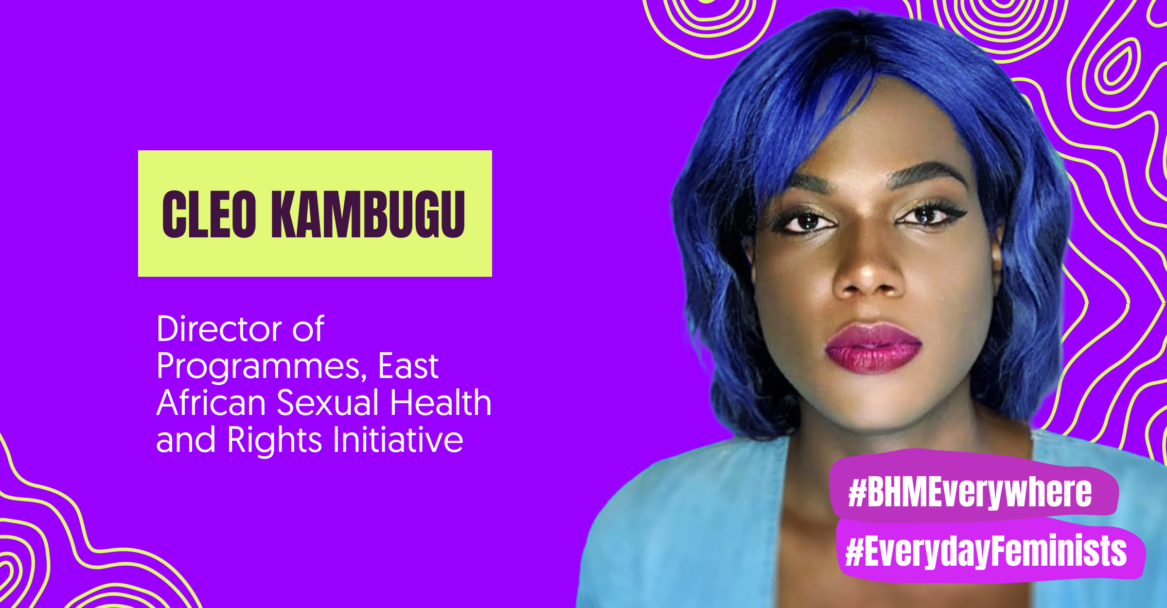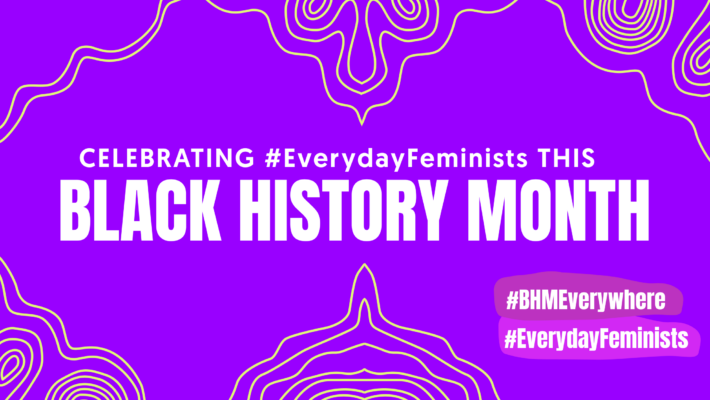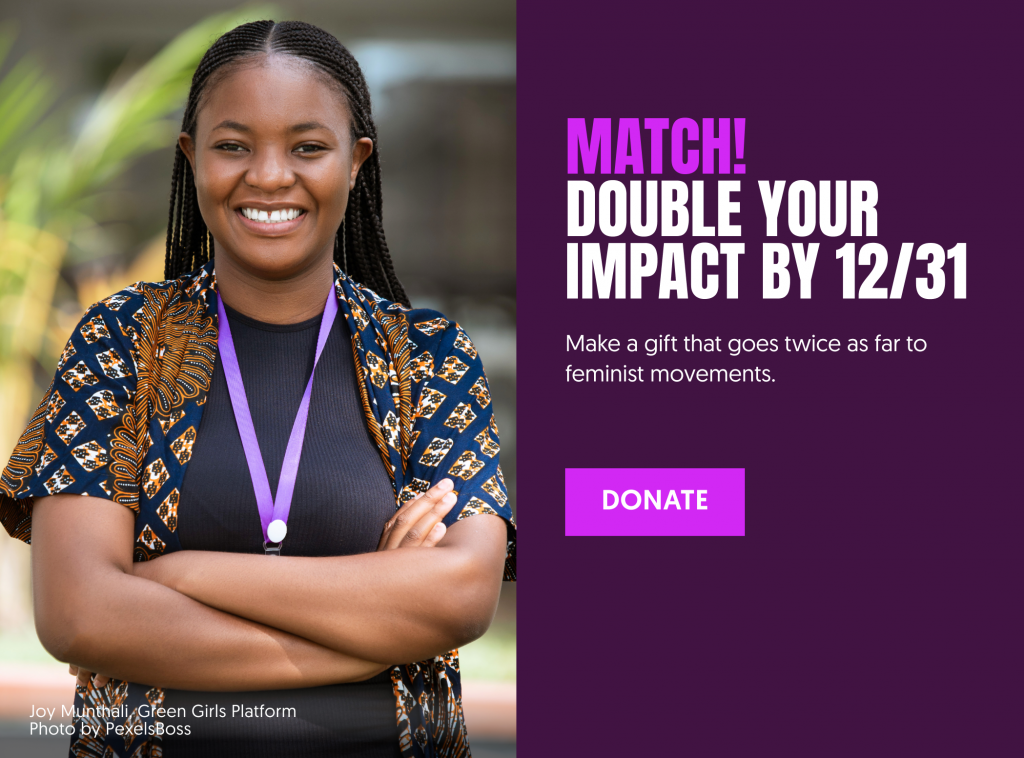Cleo Kambugu

This Black History Month, we interviewed Black leaders in philanthropy, development, and global health from across the world who are showing up, shifting power, and putting solidarity into practice across borders. Our movements are bolder, healthier, and better resourced because of #EverydayFeminists working to reshape these sectors from within. Explore the entire campaign, and join us in lifting up the people and organizations across the world who center Black freedom, Black joy, and Black dignity every day.
Cleo Kambugu is a Ugandan human rights activist leading the fight for equality for sexual and gender minorities, including trans, intersex, and gender non-conforming communities. She works as the Director of Programmes for the East African Sexual Health and Rights Initiative (UHAI EASHRI).
The roots of international development and philanthropy go back to colonial times—and the sector still reflects those dynamics. What do you see as the future of philanthropy and international development?
I believe the future we seek is not just possible but has always been here, waiting to be manifested into reality. I believe change starts to happen when you stop and ask the question “Why?” As a Ugandan, transgender, queer feminist in social justice and philanthropy asking “Why?” has been a most liberating, illuminating, and empowering question. I believe most of our global problems persist in us not questioning the way of things, because we have been programmed to blindly accept without pausing to even question.
How can philanthropy move to shift power?
In a world where power is skewed, philanthropy needs to...redistribute power to communities from whom access to power has been denied. To do this, philanthropy has to fund communities as if it wants them to win. Philanthropy is more than the mechanics of moving money; for it to shift power, it needs to interrogate its colonial histories and question how, as a tool of capitalism, it can still [make] the change it seeks.
What inspires your activism?
When I look back, I feel like my life has been a series of lessons that I had to learn to survive. My hope is that my life can be an ember that will illuminate the path for other transgender folks, so that it might be easier and more bearable to live as their full authentic selves. My hope is that people come to learn that we did not engineer ourselves into existence and that you cannot wish away that which you dislike.
My hope is that people come to learn that we did not engineer ourselves into existence and that you cannot wish away that which you dislike.Cleo KambuguDirector of Programmes for UHAI EASHRI
What do you see as the future of LGBTQIA+ activism?
While the narrative about trans folk like me right now is very transphobic, I believe that when people start talking, change starts to happen. Hopefully one day we will come to live well with each other, not in spite of our differences, but because of them.
What change has come that you didn’t expect to see in your lifetime?
The LGBTQIA+ movement in my region is only 20 years old, and it has already ignited a vital conversation about sexuality, gender, and identity.
Young queer people have dared to push for accountability and change. They have overturned laws and policies and pushed us to ask key questions. This is the most radical thing that happened, because now we can believe that everything is within our grasp as a movement if we dare to believe, ask, and stay the course.
Uganda registering its first trans citizen; Kenya recognizing intersex people and trans organizing; a dynamic regional conversation on the East African Sexual Health and Rights Bill—all of this gives me hope that the future we seek is here, or at least it’s coming.
Young queer people have dared to push for accountability and change. They have overturned laws and policies and pushed us to ask key questions. This is the most radical thing that happened, because now we can believe that everything is within our grasp as a movement if we dare to believe, ask, and stay the course.Cleo KambuguDirector of Programmes for UHAI EASHRI
Solidarity is something we talk about a lot at Global Fund for Women, and in the philanthropy sector. What does solidarity mean to you?
Solidarity is standing together as one, fortified by our multifaceted differences, and yet focused on a common goal that unites us. Its knowing that we are pieces of a puzzle of a grand mosaic and appreciating that we need each other to make sense. Its knowing that, because collective action is a marathon not a sprint, we will need each other.
How can feminist organizations put solidarity into practice with trans women?
Have gender inclusive language beyond the binary—that allows folks to explore gender in feminism. We may not always know the right language to use, but we can be conscientious and act like we care. Empathy compels us.
Also, visible inclusivity of transgender people; sharing space with trans women in mainstream spaces like International Women’s Day; remembering that our oppression is interconnected and speaking up when trans folk are not affirmed.
What is a first step that people can take to be an everyday feminist?
Being a feminist means being conscious of our differences and how they have historically been used to limit access for some. It means working to create a more fair, inclusive, and equitable society for all by disrupting the systems and structures that sustain these disparities.
Before we can have a conversation about gender justice activism we need to stop and question gender and its inclusivity even as a term. For transgender, intersex, and non-binary folks, the mention of the term “gender" only serves as a reminder of their exclusion and is often triggering. Transformative gender justice should ask itself if we are really willing to do the radical, authentic work of looking inwards before looking outwards.
GET SOCIAL WITH US
Join us as we sharing Black history around the world that features the people and organizations who center Black freedom, Black joy, and Black dignity every day.
We’re most active here. Follow us to be part of timely conversations.
The best place to show your support for gender justice activists around the world.
Where we share how we see the world.

